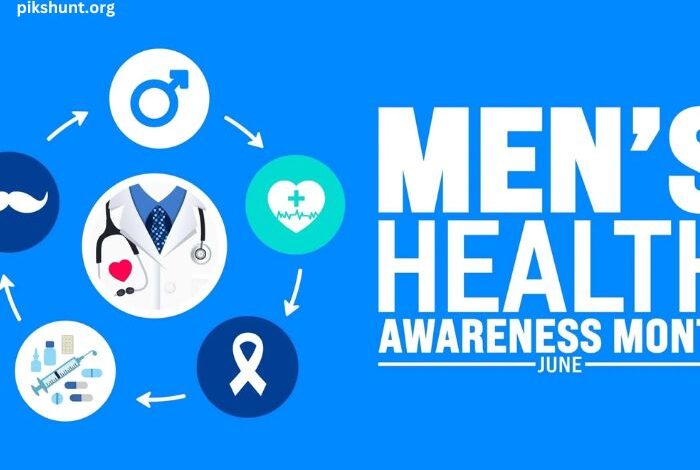men’s mental health month

Men’s Mental Health Month is a dedicated time each year to raise awareness about the unique mental health challenges that men face. Mental health is often a topic that is not discussed openly, especially among men. Society has long encouraged men to “tough it out” or keep their emotions hidden, leading to stigma and reluctance to seek help. However, as more attention is given to mental health awareness, it’s important to focus on the specific challenges that men encounter, especially during Men’s Mental Health Month.
This special month brings attention to the struggles that many men face but may not discuss openly. From higher rates of suicide to issues with anxiety and depression, the month of June offers an opportunity to create conversations, break stigmas, and offer support. The goal is not only to raise awareness but also to encourage men to prioritize their well-being and seek help when needed.
Key Points:
- Men’s Mental Health Month focuses on raising awareness for mental health issues that specifically affect men.
- The stigma around mental health often prevents men from seeking help.
- The month is an opportunity to provide support and resources for improving men’s mental health.
Why Is Men’s Mental Health Month Important?
Men’s Mental Health Month plays a critical role in raising awareness about the unique mental health challenges faced by men. Traditionally, mental health has been seen as a women’s issue, with men’s mental health often overlooked. However, research shows that men are less likely to seek help when facing mental health struggles, which can lead to serious consequences.
One of the key reasons this month is so important is that it allows for conversations to be had that would otherwise remain in the shadows. Many men feel societal pressure to conform to the idea of being “tough” and “unemotional,” which can cause them to suppress their feelings. This suppression can lead to serious mental health issues, including depression, anxiety, and substance abuse.
During Men’s Mental Health Month, the spotlight is placed on these issues, encouraging men to open up about their mental well-being. The focus is on providing resources, breaking down barriers to seeking help, and changing the narrative surrounding men’s mental health.
Note: It’s essential to remind ourselves that mental health is just as important as physical health.
What Are the Common Mental Health Issues in Men?
Men often face specific mental health challenges that differ from those typically experienced by women. Some of the most common mental health issues in men include:
- Depression: Men may experience depression differently than women, often showing signs of irritability or anger rather than sadness. This can make it harder to diagnose and treat.
- Anxiety: Many men struggle with anxiety, especially around issues of success, finances, and societal expectations of masculinity.
- Substance Abuse: Men are more likely than women to engage in risky behaviors such as alcohol or drug abuse as a way to cope with mental health issues.
- Suicide: Men are more likely to die by suicide than women, partly because they are less likely to seek help for their mental health problems.
Understanding these common mental health issues is crucial to providing the right support and resources for men. For example, treating depression in men may require different methods than those used for women, especially when considering the societal pressures and stigma that men face.
Reminder: Everyone’s mental health journey is unique, and support systems should be tailored to individual needs.
How Can Men Improve Their Mental Health?
Improving mental health requires both individual effort and societal change. Men can take several steps to improve their mental well-being:
- Open Communication: Talking about mental health can be difficult for men, but it is vital to break the stigma. Whether through a therapist, close friend, or family member, opening up about feelings is the first step.
- Self-Care: Taking care of one’s physical health can have a direct impact on mental well-being. Regular exercise, healthy eating, and enough sleep are key factors in maintaining a balanced mental state.
- Seek Professional Help: Sometimes, the best way to improve mental health is through therapy or counseling. Seeking help from a mental health professional can provide valuable tools and strategies for coping with mental health challenges.
- Connect with Others: Building a support network of friends, family, and peers can provide emotional stability. It’s important for men to create safe spaces where they can talk about their struggles without fear of judgment.
Note: Men should remember that asking for help is a sign of strength, not weakness.
What Role Does Society Play in Men’s Mental Health?
Society plays a significant role in shaping attitudes toward men’s mental health. For many generations, society has perpetuated the idea that men must always be strong, stoic, and unemotional. This cultural norm can make it difficult for men to express vulnerability or seek help when they need it.
To improve men’s mental health, societal attitudes must shift. Encouraging men to talk openly about their feelings and mental health challenges can help reduce the stigma. Schools, workplaces, and communities should create supportive environments where mental health is treated with the same importance as physical health. The role of media is also crucial, as representations of men in movies, television, and advertising can either reinforce or challenge outdated stereotypes about masculinity.
Supporting mental health education and awareness in communities is a crucial step toward changing these norms. Initiatives like Men’s Mental Health Month contribute to this change by starting important conversations and encouraging men to feel empowered to take care of their mental well-being.
Conclusion
Men’s Mental Health Month is an important initiative that brings much-needed attention to the mental health struggles faced by men. From depression and anxiety to substance abuse and suicide, the unique challenges men face require special consideration and support. By raising awareness, providing resources, and encouraging open conversations, we can help break down the stigma surrounding men’s mental health and create a more supportive environment for those in need.
As we continue to acknowledge the significance of mental health for men, it’s crucial that we encourage more people to seek help when needed and take proactive steps in promoting mental well-being. By supporting men’s mental health, we contribute to a healthier, happier society as a whole.
FAQ’s
1. What is Men’s Mental Health Month?
Men’s Mental Health Month is an annual observance aimed at raising awareness about the mental health issues that affect men and encouraging men to seek help.
2. Why is men’s mental health often overlooked?
Men’s mental health has historically been underrepresented, largely due to societal norms that promote stoicism and discourage emotional vulnerability.
3. What are common mental health issues men face?
Common mental health issues in men include depression, anxiety, substance abuse, and a higher risk of suicide.
4. How can men improve their mental health?
Men can improve their mental health by talking openly about their feelings, practicing self-care, seeking professional help, and building strong social support systems.
5. What role does society play in men’s mental health?
Society plays a crucial role by shaping attitudes toward mental health, and shifting societal norms can help reduce stigma and encourage men to seek help for their struggles.



